Sins of the Solar Empire is a science fiction adventure game from the publishers of the popular Galactic Civilizations series. Sins is a RT4X game which stands for Real time, eXplore, eXpand, eXploit and eXterminate game which successfully 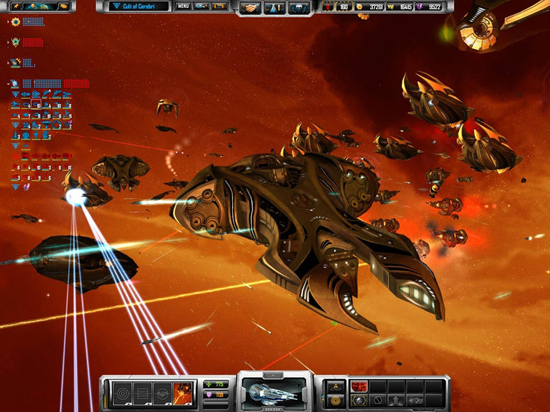 combines elements of both classic turn based 4X games and real-time strategies.
combines elements of both classic turn based 4X games and real-time strategies.
There are three playable races in Sins which each have their own identity, units and skills. The Trader Emergency Coalition (TEC) whom are faced with the arrival of the aggressive Vasari Empire. Both empires fighting a decisive campaign against each other for sway in the galaxy. Both forces keep each other at bay until an ancient race, exiled by the TEC’s for-fathers re-emerge into the galaxy. The mysterious and powerful Advent.
In game tutorials help get new players up to speed with the game, which initially is very daunting as there is a lot to take in, but the game does a good job of guiding players through the many different units and menus.
At the start of the game, the map is hidden beneath a fog, forcing you to explore. Out there, you’ll locate planets and asteroids, which can be colonised or otherwise exploited. Each planetary structure gives you a number of slots to fill according to your strategies, weighing up a research base against another space dock, a repair station against a fighter-base. All of these have to be researched, with separate tech-trees for military and production-style bonuses (plus another one for alien artifacts you 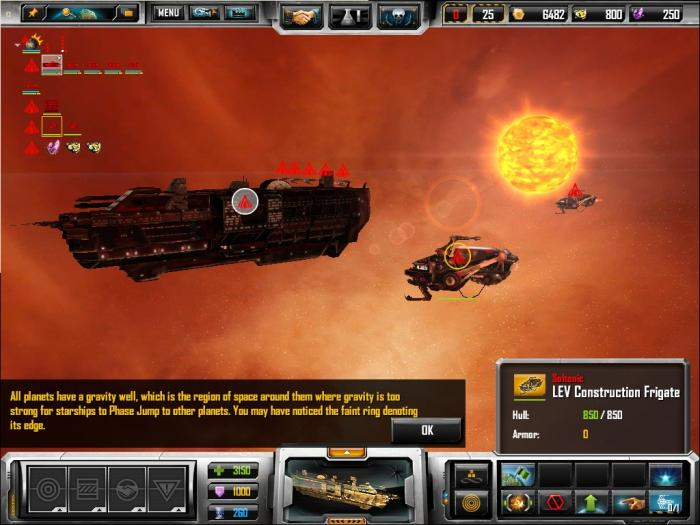 uncover on your own planets, and another for increasing your maximum fleet size and number of capital ships). More indirect routes to conquering and control are made possible via the broadcast centres spread insidiously across the maps. Diplomacy is wrestled with, and it’s possible to forge trade agreements and treaties.
uncover on your own planets, and another for increasing your maximum fleet size and number of capital ships). More indirect routes to conquering and control are made possible via the broadcast centres spread insidiously across the maps. Diplomacy is wrestled with, and it’s possible to forge trade agreements and treaties.
The “real-time” thing may be confusing. This isn’t something that moves with the pace of Command & Conquer. Even the small maps are a couple of hours’ play. If you want to deal with a multi-star galaxy with ten races looking to be the winner, you’re looking at the sort of commitment of time that matches many entire single-player games. You can have slower games by reducing the speed, or speed them up instead, but this is a game where the relative ponderousness of what you’re controlling is absolutely the point.
More than any other real-time strategy game of recent times, it’s a game where choosing when to fight becomes the key issue. Fleets take a while to get where they’re going. In terms of effective fleets, you can only be in so many places at once. The AI is especially evasive, refusing to fight and commit its resources unless it’s convinced it’s a battle worth fighting. Where to strike, how to strike, how long to push – these are the questions it asks, married to everything you’d be worried about in a normal RTS 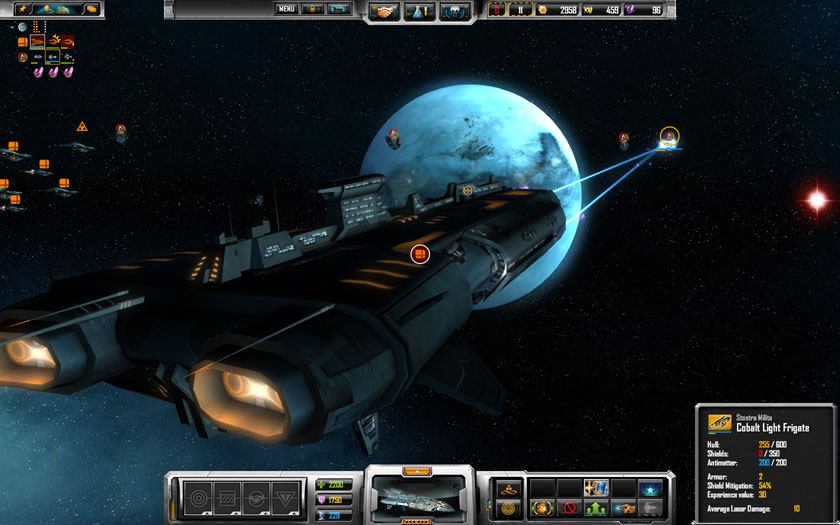 game, like the make-up of your fleet, and which Capital ships you’ve purchased (the latter are basically analagous to heroes, gaining XP and abilities as they continue). It’s compulsive, massive and a genuine challenge, and essential for anyone with an interest in progressive strategy games.
game, like the make-up of your fleet, and which Capital ships you’ve purchased (the latter are basically analagous to heroes, gaining XP and abilities as they continue). It’s compulsive, massive and a genuine challenge, and essential for anyone with an interest in progressive strategy games.
Reservations? The main one is the complete absence of a campaign mode – despite the ripe background material inherent in the game world, it’s not actually presented to you in a string of scenarios. This isn’t a problem for me, personally, but others will want a structured way into the game’s intricacies. As it is, the extra effort Ironclad has put into the skirmish mode, including the random maps, makes it clear that its peers are more the Civilizations and GalCivs of this world than Company of Heroes. Well, if you’re playing on one of the huge maps, I’ve played RTS campaigns that could be over before a single map is fought to victory, at least before you get the hang of it.
Which is my second main reservation, and a somewhat weightier one. This lengthy game works perfectly offline, but for multiplayer it’s hard to find people who are willing to play a game without dropping out. A save option – which also auto-saves – means that if you want to re-arrange a continuance you can, but this is clearly more useful for friends waging solar war rather than random people on the electric internet. This is basic logistics of human time, and not really fair to 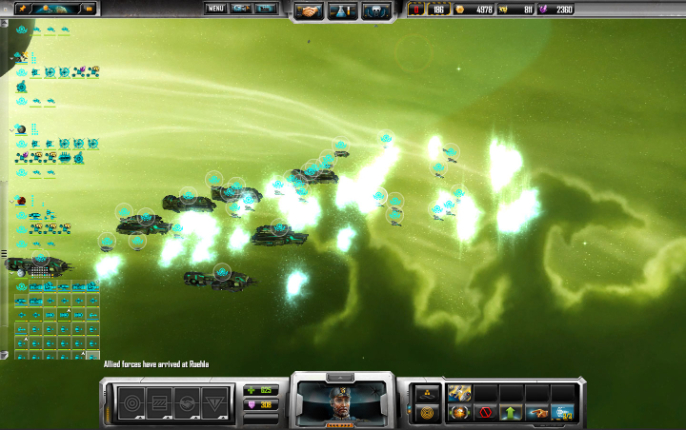 critique a game over, but you should be aware of it. There’s another side effect of the game’s sheer length, too. Almost every RTS has as stretch where it becomes obvious who’s dominant and then proceeds to crush the opposition in a tiresome slog to victory. The game’s won, and you’re just sweeping up. The difference is that since Sins takes longer, the sweeping-up period is proportionally longer. In multiplayer, this is actually less of a problem – players realise when they’re a smear on a wall, but the AI that fights to the last can be a bit more tiresome.
critique a game over, but you should be aware of it. There’s another side effect of the game’s sheer length, too. Almost every RTS has as stretch where it becomes obvious who’s dominant and then proceeds to crush the opposition in a tiresome slog to victory. The game’s won, and you’re just sweeping up. The difference is that since Sins takes longer, the sweeping-up period is proportionally longer. In multiplayer, this is actually less of a problem – players realise when they’re a smear on a wall, but the AI that fights to the last can be a bit more tiresome.
It’s worth noting though that this will be changed in a future patch. As with Stardock’s GalCiv 2, Ironclad is impressively responsive to the desires of the fan-base. Since the release, it’s already tweaked the game to make the Siege-Frigate-rush less tenable, reducing Pirate-raid frequency as well as adding the ability to speed up and slow down the game through hotkeys in single-player, so you can speed past periods that you consider too sedate.
Which is nice to have but, ultimately, a minor issue. It’s one of those rare strategy games that actually has its own view of how the genre should work, which is entirely separate to what the rest of the industry is considering. You can file this next to the Total War games, the Ground Control/World in Conflict lineage, Defcon, and all those other glorious individualists who are implicitly against the tank-rush rush. Not that it’s anything like them which, surely, has to be the point?
Disclaimer:All scores given within our reviews are based on the artist’s personal opinion; this should in no way impede your decision to purchase the game.

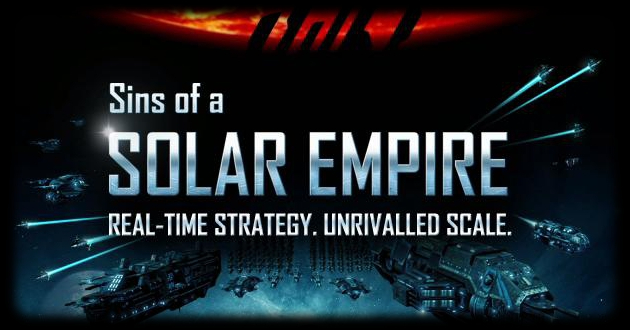






You must be logged in to post a comment.